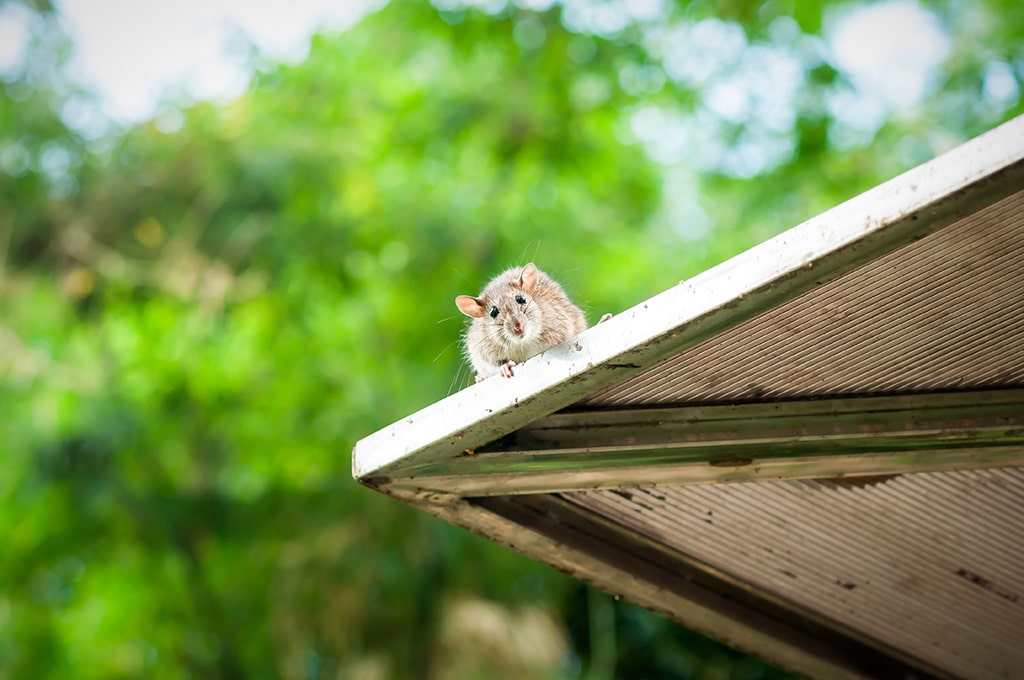
How An AC Technician Can Help Rodent-Proof Your Air Ducts With AC Repair | The Colony, TX
Rodents are an eyesore and a disturbance, particularly when infesting your home. Therefore, you must ensure that your home is clear of any places they might breed in or even survive. One of the places where the Rodents might thrive is in the air ducts at your home, resulting in a severe infestation that could make your home a sight for the sore eye.
But what makes the pests and rodents thrive in the ductwork? When the temperatures outside are too extreme, rodents or pests enter the air ducts looking for a place to nest. However, they will breed with time, resulting in an infestation. However, there are several measures that you might take with your AC repair technician to ensure that you don’t have a pest infestation.
Sealing All the Entry Points
To avert the rodent infestation nuisance and minimize energy use, you should begin by finding all the points where the rodents are entering the air ducts and have an AC repair technician patch them up. Pests and rodents like rats can enter the ductwork through the exterior and interior air vents if any holes or perforations exist on the protective screen. Additionally, the crawl spaces and the attic are points through which rodents, pests, and critters might enter the air ducts if they aren’t insulated properly.
Therefore, have an AC repair technician come over for a routine inspection of the duct works, roof, and air vents for any gaps or perforations between the walls and the air ducts. If they notice any rodents, they will remove them to ensure they don’t infest your The Colony, TX, home. A regular duct cleaning service can also help because the professional will clean and remove the pests, critters, and rodents hiding in the air ducts.
This ensures that the rodents do not perforate the air ducts to the extent that conditioned air can escape through. Hence, you won’t incur high energy utility bills until the end of the month. Additionally, insulating the attic is critical as it prevents the rodents from finding their way into the air ducts.
Regular Duct Cleaning
Since rodents were residing in the ductwork, you must clean your ducts to eliminate any remains. You should get an AC repair technician to clean the air ducts thoroughly. You must do this regularly to ensure that any rodents and dust in the air ducts are removed. DIY projects should not be attempted.
This is because by trying to clean the air ducts yourself, you might end up making the situation worse. Hence, you should leave ductwork maintenance activities to a trained AC repair professional, from vacuuming the vents to patching or sealing the perforations. Instead of removing impurities like mildew, germs, and rodent dander, vacuuming moves them about and around.
Additionally, you would breathe in all those particles every time you turned on the appliance. Experts employ machinery and gear made specifically for cleaning out air ducts of junk. They use biocides as well to eradicate microorganisms.
Seal and Repair the Air Ducts
Rodents are nasty and can chew the air ducts and electrical wires in your air conditioning system, damaging the insulation material. Sealing the air ducts ensures that birds, rats, mice, and other critters don’t have any way or means of entering them. It is among the most effective measures your AC repair technician might take to rodent-proof the air ducts. When the ducts are free from bird’s nests and rodents, your air conditioning system runs more efficiently and effectively, cooling your indoor spaces sufficiently. This is because the airflow problems are effectively resolved.
Rather than inspect the air ducts yourself, have a technician come for an inspection. The technicians are trained in these matters and can catch hidden issues. The professional will affect the required replacements if any component replacement is needed. The professionals use various tools and methods for detecting air leaks and have an industry-approved material for sealing the air ducts.
Therefore, rather than using masking tape to seal the air ducts temporarily, have a professional use a duct sealant to effectively shut them. This will ensure that air doesn’t escape and rodents don’t have access points where they might enter the air ducts. The professional will also ensure that all the connections to the registers and vents are adequately sealed.
Cover the Vent
The AC repair technician can also help rodent-proof your ducts by covering and protecting all the air vents. The technician will install a flue cover on the air vents to block the points through which the rodents might enter the air ducts. They will ensure that the vent covers are securely installed because small rodents, pests, and critters may enter the air ducts by pulling the cover. Vertical louvers can be used to cover air vent grilles to stop animals from building nests near ducts and vents. Rodents can also be kept out using mesh or specific screens.
Routine Air Conditioning Maintenance
Finally, have an AC repair technician visit your The Colony, TX, home for a routine AC maintenance visit. This is a sure way of ensuring that rodents that might have found their way into the air ducts are effectively cleared during the duct cleaning. The professional might advise that you clean up the space around your outside HVAC system. To stop rats and rodents from settling in and constructing a nest near your air conditioner, trim nearby plants. They will also advise that you cut any long twigs since rodents can enter your attic by traveling along them.
The air ducts play a significant role in distributing all the conditioned air into other various parts of your home. Hence, they should be free of any obstructions, including rodents. Do you want to rodent-proof your ducts? Contact us at One Hour Air Conditioning and Heating of Dallas, your trusted AC repair company in The Colony, TX.





